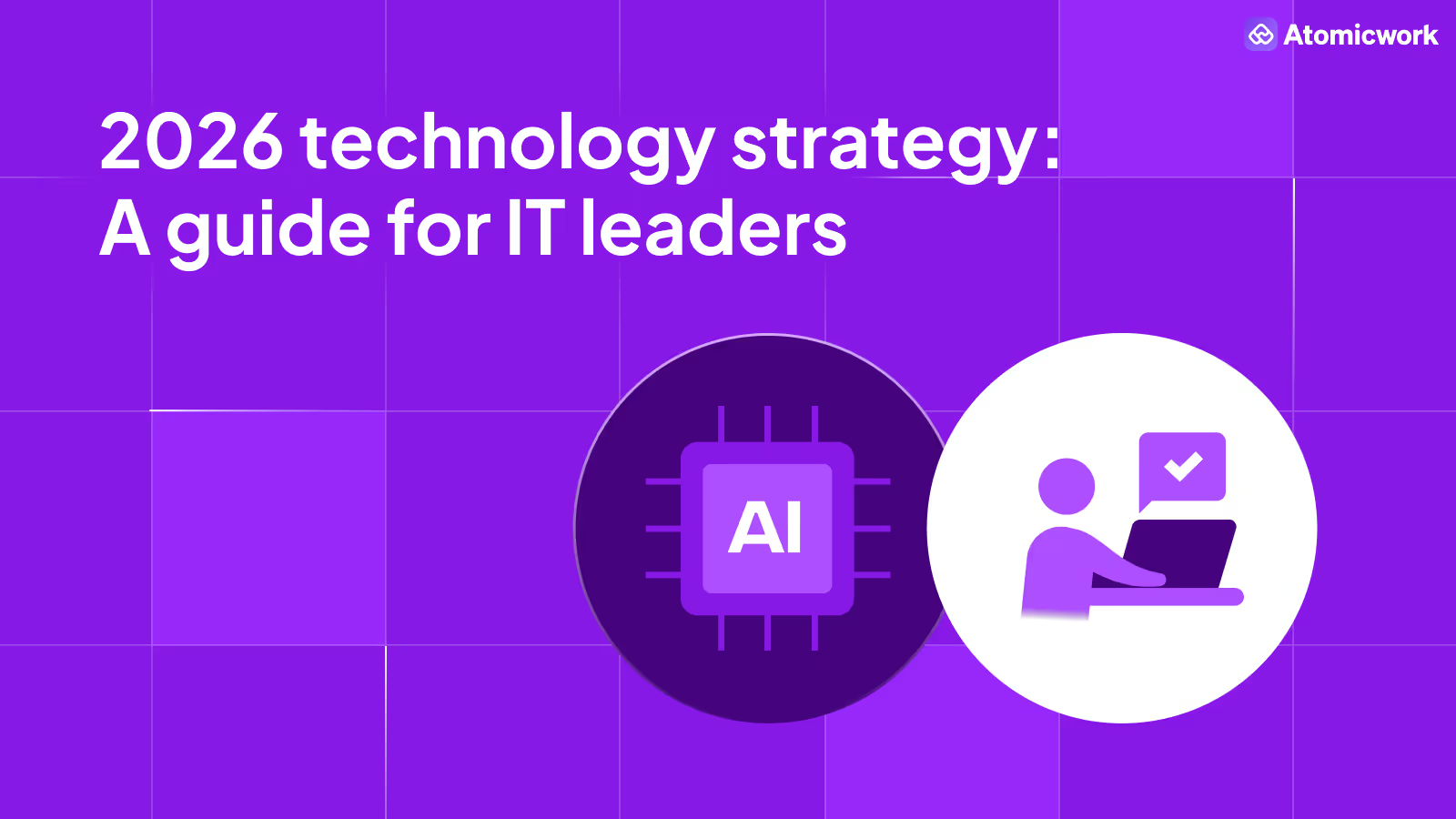How modern service management can deliver business growth

In today's fast-paced digital landscape, IT teams are not just support systems; they are pivotal players in supporting and driving business growth while ensuring enterprise efficiency.
The evolution from traditional IT Service Management (ITSM) to Enterprise Service Management (ESM) has not delivered results and instead added process overhead. It is time for IT and Business Leaders to adopt a Modern Service Management (MSM) approach to mark a significant shift in how organizations manage and deliver not just traditional back-office services like IT, HR, Finance, and Facilities, but front-office growth-driven functions like BizOps, RevOps, Sales Support, Partner Support, etc.
In this post, we delve into the necessity of modern service management tools like Atomicwork for IT teams in fast-growing mid-market companies that cannot afford expensive enterprise solutions like ServiceNow, to not just augment IT productivity but foster business growth while delivering great employee experience across departments, functions, applications, and business workflows.
1. Digital transformation
Modern IT teams must navigate the digital transformation initiatives of CXOs effectively. According to McKinsey research, only a third of the expected revenue benefits from digital transformation have been realized despite 90% of companies launching some form of digital transformation. Adopting modern service management practices enables seamless integration of recent technologies while ensuring that the IT infrastructure evolves with the business needs.
2. Customer-centric approach
Modern service management focuses on delivering exceptional customer experiences for end-users within an enterprise. According to recent studies by PwC, 80% of CIOs acknowledge the significance of improving employee experience by implementing ITSM initiatives.
3. Enhanced collaboration and communication
Modern ESM tools foster better communication and collaboration across departments by leveraging Microsoft Teams and Slack as chat-first channels instead of Service Portal or Email Tickets. This “Operate where users are” approach leads to increased adoption, service delivery efficiency, and a more cohesive organizational strategy to support all their needs without creating clunky portals for every department or dozens of support email addresses.
4. AI automation and integration
According to McKinsey, the gap in digital and AI maturity between leaders and laggards has increased by 60% in the past three years. The integration of AI and automation in service management not only reduces manual workload but also enhances service quality.
5. Data-driven decision making
With AI driven advanced analytics, IT teams can make informed decisions while using Modern Service Management solutions like Atomicwork. By 2026, Gartner predicts that enterprises that apply AI Trust, Risk, and Security Management controls to AI applications will eliminate 80% of faulty and illegitimate information, thereby increasing the accuracy of their decision-making.
6. Proactive problem management
Modern service management tools allow IT teams to be proactive rather than reactive. Predictive analytics helps in identifying potential issues before they escalate, reducing downtime, and improving service reliability.
7. Customizable and scalable solutions
As businesses grow, their service management needs evolve. Modern ITSM and ESM solutions offer scalability and customization, ensuring they remain effective regardless of business size or sector.
8. Employee empowerment
Empowering employees with self-service options and efficient tools increases productivity and job satisfaction, the true EX. According to research by Forrester and Gallup, companies that prioritize employee experience see a 17% increase in productivity, 21% higher profitability, 4.3 times increase in earnings per share, and 81% higher customer satisfaction.
9. OpEx cost efficiency
Modern service management can significantly reduce operational costs through streamlined yet intelligent processes and automated AI-enabled workflows. This will lead to more efficient use of resources to support business growth, translating into significant cost savings and bottom lines for the business.
10. Future-ready AI
Investing in AI can be highly lucrative for businesses. On average, a $1 investment in AI yields a $3.5 return. Adopting modern service management practices can help companies stay ahead in AI technology adoption. Optimizing business processes and automating workflows enhances competitiveness in the market.
Modern service management is not just a trend; it's a necessity for modern IT and Business teams. It plays a crucial role in driving productivity while supporting business growth. Organizations that embrace these practices are well-positioned to thrive in the digital era, marked by rapid change and innovation.
Frequently asked questions

Faq answer paragraph

Faq answer paragraph

Faq answer paragraph

Faq answer paragraph

Faq answer paragraph

Faq answer paragraph

Faq answer paragraph

Faq answer paragraph

Faq answer paragraph

Faq answer paragraph
You may also like...

































